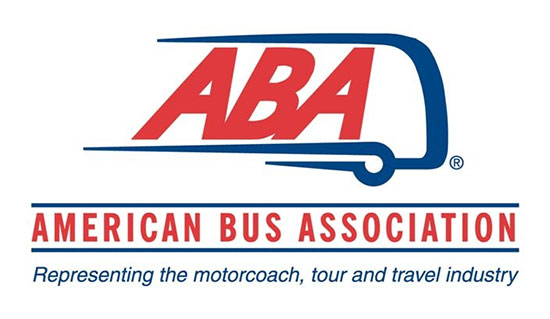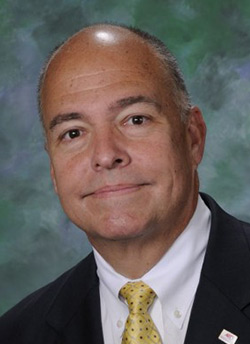- Details
- Category: Industry News
The Global Business Travel Association (GBTA), the world’s largest business travel association, recently published the findings from a study into organizations’ corporate meetings and events strategy as a result of the pandemic (May 21, 2021). The study, made possible by Cvent, examines how US- and Canada-based travel meetings and events planners are managing their corporate meetings in the year ahead, the impact of COVID on their events, and the use of technology to enhance the delegate experience.

Key Findings:
Number of hybrid meetings set to double in 2021: The workplace in 2020 will be remembered for virtual meetings, but into 2021, the trend moves towards hybrid meetings, which offer both in-person and virtual experiences.
Prior to the pandemic, approximately seven in 10 respondents (71 percent) did not hold any hybrid meetings. This figure remained unchanged in 2020. As restrictions ease and business meetings resume, hybrid meetings could be on the rise to better accommodate both in-person and virtual attendees and reach a broader audience. Three in five respondents (60 percent) expect their company will hold at least one hybrid meeting in 2021. In addition, two-thirds of respondents (65 percent) are interested in holding more hybrid meetings as a result of the pandemic.

Simple meetings will be first to recover: Approximately half of respondents (52 percent) expect the number of in-person simple meetings held by their company—with 50 attendees or fewer—to return to the pre-pandemic level within a year.
For most companies, C-suite executives play a central role in approving requests to hold meetings in the current environment: Three-quarters of respondents (75 percent) say C-suite executives are involved with deciding if it is safe to hold a meeting or event in the current COVID-19 environment. Half say these executives (49 percent) have the most influence over the decision, while 17 percent say their company’s security/risk department has the most influence over the decision. While a number of other stakeholders—including HR, legal/compliance, travel managers/meeting planners, and budget owners/business units—are commonly involved when deciding if it is safe to hold a meeting or event, they rarely make the final decision.
Few companies have central visibility of all of their meetings: Only 30 percent of respondents say “most” or “all” of their company’s meetings are visible on a central calendar. A larger number say “few meetings” (19 percent) or “no meetings” (20 percent) are available on a central calendar. In some cases, different departments or regional offices plan and track meetings in different ways. This can make it difficult to quickly locate all scheduled meetings in an emergency situation. In addition, without this visibility, organizations risk over-spending and improperly managing their events.
Respondents find value in virtual meetings as part of a more robust event program: The nearly complete shift to virtual events in 2020 led to a positive change in respondents’ views towards their effectiveness as part of their overall marketing strategy.
 Cvent CMO Patrick Smith
Cvent CMO Patrick Smith
Respondents want to use technology to enhance the virtual experience: A large majority are “interested” or “very interested” in adding various technology components to virtual meetings in order to deliver a more engaging and immersive online event. These include virtual conferencing (79 percent), online registration (76 percent), post-event attendee surveys (74 percent), attendee tracking/lead tracking (70 percent), live polling (70 percent), and mobile event apps (66 percent).
While these are common staples of in-person meetings, respondents want to use them for virtual meetings as well to increase engagement and maximize virtual event ROI.
“The pandemic has had a significant impact on how organizations plan and manage their corporate meetings and events,” said Cvent CMO Patrick Smith. “A smart mix of virtual, in-person, and hybrid events is the future; and these three event delivery models will enable companies to reach and engage bigger audiences and gain deeper insight into attendee interests. The use of technology will help to lead the way in this new environment where we expect events to be more numerous and impactful than ever.”
Visit gbta.org for more information.
[05.27.21]
- Details
- Category: Industry News
Deem, a mobile and cloud technology provider for the corporate travel industry announced it has won the Silver Stevie award in the 19th Annual American Business Awards for its Travel SafetyCheck feature in its new Etta business travel booking and management solution. SafetyCheck efficiently provides accurate health and safety information for each segment of their trip within the booking flow as travelers are booking trips, when they need it most, according to Deem.
 Deem President David Grace
Deem President David Grace
“We know that travel is better for business when it’s better for people,” said Deem President David Grace. “Empowering people with the right information at the right time helps them make the best choices for themselves and their companies. It allows them to focus on their jobs and helps them be more productive. This is why we’re so committed to being a traveler-centric software platform.”
As a business travel technology company, Deem is very sensitive to the impact of the pandemic on our industry and people, especially on those critical industries that need to continue traveling despite the risks. SafetyCheck was conceived, produced, and delivered to the Etta platform in just 90 days, in response to the immediacy of the pandemic and traveler needs.

“I was impressed how they turned their problem of wanting to offer a more actionable duty of care solution into a solution in 90 days,” said one of the judges about the SafetyCheck entry. “The analytics, clients, and reviews provided made their case more professional. The website and video were very well put together and is something I could see businesses and professionals using often. A great corporate response to the pandemic.”
The SafetyCheck feature is highlighted in each phase of booking—flights, hotel, and ground transportation—so travelers can easily find information such as cleaning protocols, regulations, safety scores for hotel neighborhoods based on nighttime safety, LGBTQ+ safety and other factors, maps of COVID historical and current caseloads, and more. Using icons, maps, and pop-up boxes for additional vendor information, the details are presented in a clear and organized way, creating a seamless booking process for the traveler.
The American Business Awards is a premier business awards program. Nicknamed the Stevies for the Greek word meaning “crowned,” the awards will be virtually presented to winners during a live event on Wednesday, June 30.
Visit deem.com for more information.
[05.21.21]
- Details
- Category: Industry News

On Wednesday, May 19, the American Bus Association (ABA) held a webinar for their membership to provide an overview of the Coronavirus Economic Relief for Transportation Services (CERTS) Grant Program. Hosted by ABA President & CEO Peter Pantuso, ABA Sr. VP, Government Affairs & Policy Suzanne Rohde, and lobbyist Angela Styles of Akin Gump, the session served as a primer of what operators can expect when the program goes into effect in the coming weeks.
 ABA President & CEO Peter Pantuso
ABA President & CEO Peter Pantuso
Signed into law a staggering five months ago, the CERTS application portal is expected to open by the end of May.
“It’s taken way too long from our perspective,” said Pantuso, but he expressed optimism that the grant’s $2 billion will soon find its way into the bank accounts of motorcoach operators.
 ABA Sr. VP, Government Affairs & Policy Suzanne Rohde
ABA Sr. VP, Government Affairs & Policy Suzanne Rohde
Following Pantuso’s opening remarks, Rohde then outlined the program, whose guidelines were made available earlier this month, as well as the application process.
First and foremost, Rohde said, CERTS is a grant program, as opposed to the other relief loans (i.e., PPP and EIDL) that were made available since the pandemic hit. The Treasury is making the funds available to motorcoach operators who showed a loss of 25 percent or more due to COVID.

The application portal is scheduled to open by the close of May, and will be open for 30 days. Somewhat unusually, the funding formula used by the Treasury to determine the distribution of moneys will be decided AFTER the window closes. The government will analyze the allocation—for instance, whether it will go to motorcoach companies, school bus operators, or other providers—and then set the award amounts. Rohde pointed out that AT BEST, operators can anticipate their loss of revenue for 2019-2020, but the dollar amount will likely be lower. However, the Treasury is being especially sensitive to small businesses, which is beneficial for motorcoach operators in the luxury ground transportation space.
In order to apply for the funds, Rohde encouraged operators to have the following key documentation ready:
- TIN/EIN
- Financial records for 2019-2020, including taxes and any debt
- Payroll records for all employees
- The number of vehicles and type (note: to receive CERTS operators must be using buses commonly defined as “elevated deck, over the road” vehicles
- Records of other relief funds received
- Also, Rohde advised participants to register online with id.me in advance to access the portal
The ABA representatives advised all members to apply for the grant as the association is actively seeking more relief money for the industry.
A free recording of the webinar is available here.
Visit buses.org for more information.
[05.20.21]

